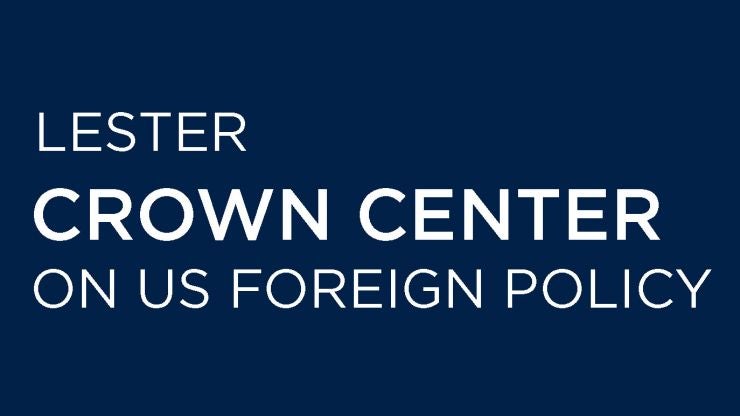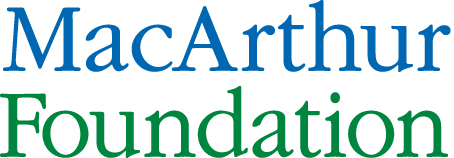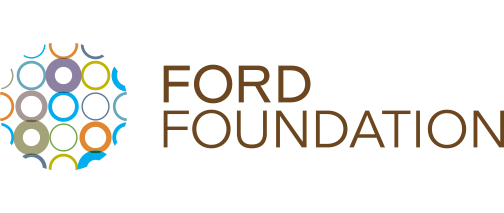The 2004 Chicago Council Survey explores public opinion on core concepts about the world order, the rights and responsibilities of nation-states, and the role of unprecedented American power.
Introduction
The United States is the world’s undisputed military and economic superpower. It has a more formidable global presence than ever, maintaining approximately 700 military installations abroad in 2003 and spending as much on defense in 2004 as the next 20 nations combined. This amount of spending is still only 4% of its gross domestic product (GDP). The U.S. share of total world product is approximately 30% today, up from 20% in the 1980s. The American stock markets account for approximately 36% of global market value. Seventy-five percent of all Nobel laureates in the sciences, economics, and medicine do research and live in the United States.
While the United States is alone among nations in the magnitude of its power, its destiny is more deeply intertwined with that of other nations than ever before. Globalization is speeding the flow of information, people, ideas, and goods around the globe, creating enormous opportunities and also new challenges. Among these challenges have been the September 11 attacks and their after- math, the war in Iraq, the failure of the Cancun WTO meetings, and international criticism and perception of
U.S. foreign policies as unilateral and misguided. This, in turn, has led to an emerging debate in the United States and internationally over the U.S. role in the world and how best to achieve global security and prosperity.
The key questions in this debate are not the usual stuff of policy discourse. Rather, they go to core concepts about the nature of the world order, the rights and responsibilities of nation-states, and the role of unprecedented American power. In an era defined by the urgent challenges of globalization, terrorism, weapons of mass destruction, and weakened international institutions, this debate will continue and grow long into the future.
One of the major factors shaping the debate will be understanding the evolving “cognitive framework” of the American public and leadership as they look at the world and evaluate how the international system and the U.S. role in it have been transformed by recent events. Do Americans perceive the threats of terrorism and weapons of mass destruction as requiring fundamentally new responses, including preventive war and regime change? Do unilateral means have new appeal and multilateral approaches less credibility? Under what circumstances and through what processes do international intervention and the use of force against sovereign states acquire legitimacy? What claims should developing countries have on the global economy and through what means can they be addressed? Should American power be used to spread democratic values and institutions? More generally, how should American power be used in an era of U.S. primacy in world affairs?
In order to shed light on American attitudes towards these critical issues, The Chicago Council on Foreign Relations has chosen to conduct a special 2004 biennial study of U.S. public and leader opinion on international issues. The decision to conduct this study, the ninth in the Council’s traditionally quadrennial series, is due to both the significant role foreign policy issues are playing in American political life and the 2004 presidential election and the unique opportunity to collaborate with partners in Mexico and South Korea on simultaneous, parallel surveys focused on key similarities and differences between Americans, Mexicans, and South Koreans on the rules of international behavior as well as key bilateral concerns. The findings for these surveys are contained in four separate reports: one on the U.S. results, one on the Mexico results, and one each on the comparisons between Americans and Mexicans and Americans and South Koreans.
More than half the questions in the U.S. survey are new and focused on the “rules of the game.” But a number of questions from previous CCFR studies were also used, allowing us to measure changes in American public and leader thinking about the rules of the game and other matters. Special attention was given to tracking and analyzing the similarities and differences in opinion between the American public and a sample of American foreign policy leaders. Although sometimes the differences in opinion between the public and leaders reflect gaps in awareness or information, they also represent deeper divergences in outlook that point to potential policy problems.
Key Findings
The Global U.S. Position
Three years after the September 11 attacks of 2001, terrorism and other security threats still loom large in the public’s mind. However, there is a lowered sense of threat overall compared to 2002, and the domestic concern of protecting American jobs is now the most commonly cited goal of U.S. foreign policy. Support for foreign policy goals overall is down, as are the numbers of Americans who want to increase spending on homeland security and defense. There is lower support for stationing U.S. troops abroad, particularly in Middle Eastern or Islamic countries. Yet Americans are still committed to playing an engaged role in the world and support taking action when clearly threatened, especially against terrorism. They do not want to play a dominant role, supporting diplomatic and multilateral approaches to international problems in even greater numbers than in 2002.
International Norms and the Use of Force
Following September 11, there has been substantial discussion regarding the international norms governing the use of force and whether they need to become less restrictive to respond to the new threat posed by terrorists and the spread of weapons of mass destruction. The American public and leaders strongly endorse the traditional constraints on the use of force by individual states and resist new ideas for making them looser. They also indicate readiness to give wide-ranging powers to states acting collectively through the United Nations to address various potential threats.
Multilateralism and International Institutions
Some have argued that in a globalized world it is necessary for countries to participate in a rules-based international system that constrains decision making by the United States and other individual countries so that consensus can be reached on critical issues. Others argue that the United States, as the world’s most powerful nation, should not accept these constraints. The survey results indicate there is substantial U.S. public and leader support for collective decision making and for strengthening international organizations. Both the public and leaders also support U.S. participation in a wide range of international treaties and agreements.
International Norms and Economic Relations
There is currently a debate on the equity of the international trading system and the degree to which trade should be free. Related to this are questions about the structure and role of the World Trade Organization and the growth of regional trade agreements. The survey findings indicate Americans want to pursue free trade provided displaced American workers are assisted and the environment is protected. They strongly support an international trading system regulated through multilateral institutions and requiring compliance with decisions that have majority support.
U.S. Leaders and the Public: Policy Attitudes and Perceptions
When comparing the attitudes of public and leaders on a range of policies and positions taken by the present or previous U.S. administrations, a fairly broad consensus between the public and leaders emerges, with both public and leaders supporting some and opposing others. In another interesting comparison in which leaders were asked to predict public opinion on a number of policies and positions that were asked in this survey, there are striking misperceptions among the leaders about public attitudes on those questions.




